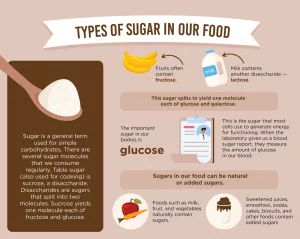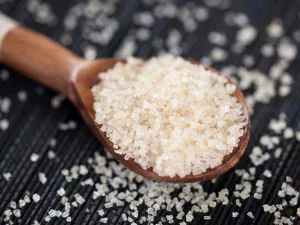Collagen is a kind of protein. Certain foods — especially animal skin and connective tissues — are high in collagen. You can also find collagen sold as a dietary supplement.
Many individuals hoping to support their skin, joints, and hair health take collagen supplements daily or stir collagen powder into their morning coffee, tea, or smoothie.
Even though collagen supplements and other collagen-based products have become more popular, most people aren’t clear on what collagen actually is or what role it plays in the body.
This article explains everything you need to know about collagen: what it is, how it functions in the body, and whether collagen supplements are worthwhile.
:max_bytes(150000):strip_icc()/Best-Collagen-Supplements-Byrdie-Tout-60c34c5643f14354b2699e79d0c35383.jpg)
What is collagen, and why is it important?
Collagen is a structural protein in animals. Structural proteins form the framework of cells and tissues. Scientists have identified 28 types of collagen, and type I collagen makes up about 90% of the collagen in humans.
Collagen consists mainly of the amino acids glycine, proline, and hydroxyproline. These amino acids align in three strands that form the triple-helix structure that defines collagen.
Collagen is present in connective tissue, skin, tendons, bones, and cartilage. It gives tissues structural support and plays key roles in cellular activities, such as:
- tissue repair
- immune function
- cell-to-cell communication
- cell migration, which is necessary for tissue upkeep
Connective tissue cells called fibroblasts manufacture and preserve collagen. With aging, collagen becomes fragmented, fibroblast activity declines, and collagen synthesis slows.
These alterations, together with loss of another structural protein called elastin, contribute to signs of aging like sagging skin and wrinkles.
Collagen supplement choices
Your body makes collagen naturally, and you can also obtain it from foods such as chicken and fish skin, or from supplements.
Both oral and topical collagen products — including supplements and facial creams — are commonly used to address aging concerns like wrinkles, decreased skin hydration, and joint discomfort.
Collagen is sold in powder, capsule, and liquid formats.
People take it as a supplement or mix it into warm and cold beverages as well as foods like oatmeal, yogurt, and energy bites.
Healthcare providers also use collagen and collagen-derived materials in medicine, for example to treat wounds, burns, and diabetic ulcers. Cosmetic companies incorporate collagen in moisturizers and serums for its hydrating and humectant effects.
What causes collagen loss?
Collagen production naturally declines with age over time. Collagen also becomes more fragmented and less densely organized, which produces typical aging signs such as wrinkles and dry, sagging skin. The strength of collagen in the skeletal system also diminishes with age, contributing to reduced bone strength.
Although age-related collagen decline is unavoidable, certain dietary and lifestyle choices can speed up the process. For instance, cigarette smoking is known to break down collagen and accelerate skin aging, increasing wrinkles and loss of elasticity. Heavy alcohol consumption has similarly been linked to faster skin aging by lowering collagen production and impairing repair mechanisms.
Diets high in added sugars and ultra-processed foods can also promote premature aging by causing glycation, a process that reduces collagen turnover and interferes with collagen’s interactions with nearby cells and proteins.
Excessive sun exposure additionally damages collagen, so using sunscreen and limiting sun exposure helps protect against early skin aging.
Which foods are high in collagen?
Collagen exists in all animals and is concentrated in parts like skin and joints.
Examples of collagen-containing foods include:
- animal bones, skin, and ligaments — for example, chicken skin and pig knuckle
- certain seafood, like fish skin and jellyfish
- foods made from animal parts such as bones and ligaments, including bone broth
Because your body produces collagen from amino acids, you can support collagen formation by consuming enough protein from sources such as poultry, fish, beans, and eggs.
Besides amino acids, other nutrients are required for collagen synthesis and upkeep. For instance, vitamin C is essential for collagen formation, so low vitamin C levels can impair collagen production. Eating vitamin C-rich foods — citrus fruits, peppers, leafy greens, and berries — can help maintain healthy collagen production.
Moreover, a diet rich in beneficial plant compounds may support skin health by lowering inflammation and protecting against collagen breakdown.
What are the benefits of taking collagen?
Research indicates that collagen supplements can provide several potential benefits.
Possible skin benefits
One of the most common reasons people take collagen supplements is to support skin health. Studies suggest collagen supplementation may improve certain measures of skin condition and appearance.
A large trial, which included 1,125 participants (95% women) aged 20 to 70, reported that hydrolyzed collagen improved skin hydration, elasticity, and wrinkles versus placebo.
Hydrolyzed collagen, often used in supplements, is processed through hydrolysis to break the protein into smaller fragments, making it more readily absorbed by the body.
Several studies have found that taking collagen supplements may boost skin hydration and elasticity and lessen the appearance of wrinkles. However, many of these trials were funded by collagen manufacturers, which could influence outcomes.
Potential bone benefits
Beyond skin effects, collagen supplements might offer other advantages, including improvements for certain bone and joint conditions.
Postmenopausal bone mineral density
One trial investigated collagen supplementation in 102 postmenopausal individuals with low bone mineral density (BMD). Participants who took 5 grams of collagen peptides daily for one year saw notable increases in spinal and femoral BMD compared with those receiving a placebo.
A follow-up study involving 31 of these women found that taking 5 grams daily for a total of four years was linked to progressive BMD gains. Researchers observed spine BMD increases of 5.79–8.16% and femur gains of 1.23–4.21% during follow-up.
These results indicate that long-term collagen supplementation may help raise bone mineral density in postmenopausal people at greater risk of osteopenia and osteoporosis, though further research is necessary.
Osteoarthritis
Oral collagen supplements may also improve function and reduce pain in people with osteoarthritis (OA).
A meta-analysis covering studies with a combined 870 participants found that those who took oral collagen supplements experienced better function and less pain than control groups.
A 2024 clinical trial of 80 participants with knee OA reported similar benefits: those taking oral collagen supplements had improved physical function and decreased pain compared with the placebo group.
Another 2025 review examined collagen supplementation in both healthy people and those with musculoskeletal conditions. Despite inconsistent study methods, the review suggested collagen may benefit active individuals and people with joint pain. Still, more well-designed research is needed.
What side effects can collagen cause?
Collagen supplements are generally well tolerated and have a favorable safety profile. However, manufacturers often combine collagen with other compounds in supplements, and some of those additions may pose health concerns, such as herbal extracts or very high doses of vitamins in products marketed for skin, hair, and nails.
For instance, herbal ingredients can interact with prescription medications, and some are unsafe during pregnancy or breastfeeding. Some collagen-containing supplements may include megadoses of nutrients like biotin, which can interfere with laboratory tests for heart and thyroid function. Prolonged high-dose intake of certain vitamins and minerals could cause adverse effects.
Determining the collagen source and product purity can also be challenging. One review identified 59 different collagen products; many did not disclose collagen sources. Of those that did, 17% listed fish as the source. None included allergy warnings, and only a few had third-party testing to verify sourcing, purity, and additional ingredients.
If additional minerals or compounds are present, they might interact with prescription drugs.
Other considerations
Although there is limited research on interactions between collagen and prescription medications, potential interactions exist, so consult your healthcare provider if you plan to add collagen supplements and take prescription drugs such as:
Blood thinners: If you use warfarin (Coumadin), check with your physician before starting collagen. While data are limited, natural collagen plays a role in blood clotting. More studies are needed to determine whether supplemental collagen affects anticoagulant medications.
Beta-blockers (propranolol):Research indicates that high-protein diets may alter how quickly these drugs are cleared, potentially reducing their effectiveness. If you take a beta-blocker for heart rhythm or other conditions, discuss collagen supplementation with your clinician.
Collagen supplements might interact with these medications. If you take any, review collagen use with your doctor first.
Supplements that contain only collagen are unlikely to cause major side effects, but always read labels and be aware of risks tied to products that combine collagen with other ingredients.
Collagen supplements versus other protein
You don’t have to eat collagen-containing foods or take collagen supplements to support your body’s collagen or bone health. Consuming adequate high-quality protein, along with vitamin D, calcium, vitamin C, and zinc, helps the body synthesize and maintain collagen and bone tissue.
Eating a balanced diet with somewhat higher protein intake can be especially helpful for preserving muscle and bone as you age. Pairing this with regular physical activity — particularly resistance training and weight-bearing exercise — supports musculoskeletal health.
Experts recommend consuming more than 0.36 grams of protein per pound (0.8 grams per kg) of body weight. More recent research suggests protein needs may be individualized: some people do well with recommended amounts while others may benefit from substantially higher intake.
How to slow collagen loss
While you can’t completely prevent age-related collagen decline, you can slow it. Diet and lifestyle choices strongly influence collagen production.
Smoking and heavy alcohol use can harm collagen synthesis, as can diets high in ultra-processed foods and added sugars.
Conversely, a healthy lifestyle that includes a nutrient-rich diet, avoidance of smoking, and limited alcohol intake may slow age-related collagen changes and lessen visible signs of aging like wrinkles. Reducing intake of certain foods and increasing consumption of protective foods can support collagen maintenance and overall skin health.
For example, eating a diet low in advanced glycation end products (AGEs) may promote skin health. AGEs are compounds that build up in the skin and can stiffen collagen and inactivate proteins involved in collagen repair.
Research shows foods high in AGEs include processed meats (hot dogs, bacon), fried foods (French fries, fried chicken), and roasted or grilled meats.
Additionally, a diet rich in high-quality protein and plant foods like fruits and vegetables — which supply nutrients that support and protect collagen — may help preserve collagen stores and prevent damage and loss.

Frequently asked questions
Who should avoid collagen?
Collagen is safe for most people, but individuals with food allergies (for example, to fish or shellfish) should verify product labels to avoid allergens. Because collagen is derived from animals, vegetarians, vegans, and those following Kosher or Halal diets may prefer to avoid it.
Do collagen supplements interact with medications?
There’s limited evidence that collagen itself interacts with prescription drugs, but other ingredients in supplements (such as herbal extracts) might. Consult a healthcare professional before using supplements if you take medications.
The bottom line
Collagen is a protein found in connective tissue, skin, tendons, bone, and cartilage. It provides structural support and participates in vital processes like tissue repair and cell communication.
Your body produces collagen naturally, but you can also consume collagen through supplements and certain foods, which may benefit skin, bones, and more.
Research indicates collagen supplementation may be particularly helpful for certain uses and groups, such as increasing bone mineral density in postmenopausal people with low BMD.
Eating a balanced diet with enough protein, vitamin C, vitamin D, and zinc is often a healthier and more economical approach than supplements. Combined with regular exercise, these measures can help reduce age-related collagen and bone loss.
Although some collagen loss with age is unavoidable, adopting a healthy lifestyle can help protect collagen, delay the signs of aging, and support overall health.
























Leave a Reply
You must be logged in to post a comment.